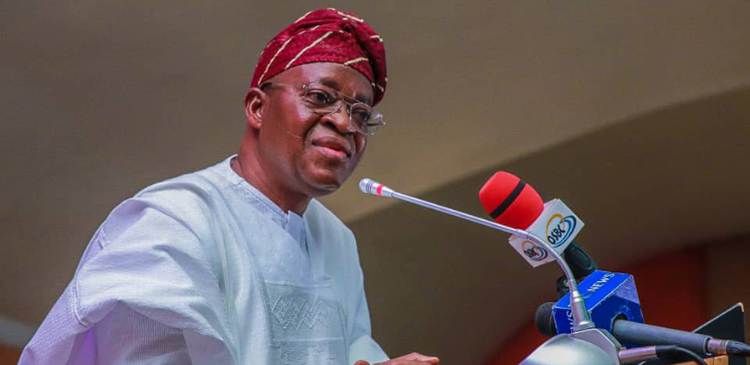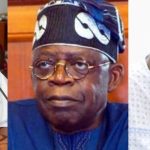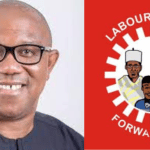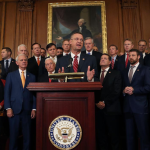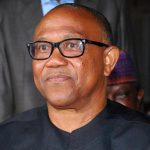President Bola Tinubu few days ago assigned portfolios to Ministers-Designate with former Osun State Governor, Gboyega Oyetola assigned to the Federal Ministry of Transportation.
Oyetola will be taking charge at a time Nigeria is in dire need of a more robust and integrated transportation system capable of facilitating movement of people and goods at affordable cost in a post-fuel subsidy regime.
Barring any last-minute changes, Oyetola will occupy the number one office at the Dipchama House where Nigeria’s Federal Ministry of Transportation is currently operating from in the Central Business District of the Federal Capital Territory, Abuja.
Now 69-year-old, Oyetola has been a member of the ruling All Progressives Congress, APC, since 2013 and served as Governor of Osun State, Southwest Nigeria, between 2018 and 2022, but failed to secure re-election after he lost the July 16, 2022 Osun Governorship election to Senator Ademola Adeleke of the Peoples Democratic Party, PDP
The former Governor holds a Bachelor’s degree in Insurance from the University of Lagos and subsequently obtained his Master’s degree in Business Administration in 1990. He worked at some Insurance companies, serving in various capacities until 1991, when he started his own company.
Perhaps his journey into the murky waters of Nigeria’s political landscape began in 2011 when he was appointed the Chief of Staff to then Osun State Governor, Rauf Aregbesola, who he eventually succeeded.
Oyetola was one among nine former governors, whose names were on the list of Ministerial nominees forwarded to the Nigerian Senate by President Tinubu for screening and possible confirmation in July 2023.
MUST READ: Gboyega Oyetola, declared winner of July 16 Osun election
Having been confirmed and assigned a portfolio, the former Governor would be assuming office at a time when many believe the Ministry of Transportation requires purposeful and result-oriented leadership as it has gone through several challenges in service delivery, especially during the latter stages of the previous administration.
Notably, the ministry made a remarkable impact in the upgrade of existing rail services during the first six years of the administration of former President Muhammadu Buhari. There was also a bold move at revitalising the nation’s blue economy for sustainable development.
But gains recorded were almost eclipsed by various challenges, especially in the areas of management and security. In addition, the volume of debts incurred while developing most of the transport infrastructure under the immediate past administration also constituted a major set back.
The existential challenges in the Transportation sector in Nigeria are quite huge and would require someone with determination, political will, competency, exceptional managerial and administrative skills to navigate through and proffer the right solutions.
Industry watchers are already calling on the man who has been assigned to do the job to brace up and bring his wealth of experience in both private and public practice to bare on this new assignment.
Standards have already been set at the Ministry and expectations are high that the incoming Minister will not hesitate to set the ball rolling with a view to repositioning Nigeria’s Transportation sector for rapid growth and development in line with what’s obtainable in most advanced countries of the world.
(Editor: Terverr Tyav)



